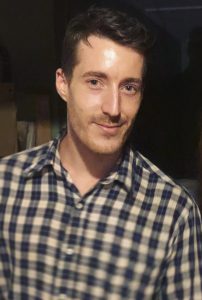
What do you enjoy most about your role?
As a Kids Helpline Counsellor, I have the privilege of bearing witness to children and young people carving out their own path in this world by harnessing and strengthening their individual attributes and qualities. This process can often occur when young people are existing in environments of extreme neglect and abuse, making the conditions they need to be able to flourish almost unobtainable. In any moment you might sit with a young person through a period of growth, or with them when they need intervention support to get them through the night – I believe each moment is a gift of trust. I’m so lucky to be invited into the lives of so many children and young people for as little or as long as they are needing support.
Can you share a bit more about the MyCircle platform and how it supports young people in response to the coronavirus pandemic?
MyCircle is a peer-support platform for users aged 13-25, moderated by Kids Helpline Counsellors. Further innovation of this platform was made possible by the investment from Future Generation. It is a space for young people to share their experiences and seek support from other young people with the safety of knowing that trusted professionals are available when needed. During the pandemic, where virtual support like this was so needed, MyCircle was able to be there in the way young people wanted to engage and seek help. It’s a place for young people to turn to when they need a reminder that they are not alone in this uncertain world. This has truly become a life-changing and saving space for many.
What are some of the challenges that young people are facing due to the impacts of the pandemic?
I speak daily with children and young people who contact Kids Helpline to share concerns of loneliness, abuse, feeling unsafe at home, and thoughts of self-harm or wanting their life to end. The pandemic has been a time of uncertainty for all of us, but for vulnerable children and young people who may not yet have had a chance to establish a sense of purpose or belonging in the world – the increased number of contacts to Kids Helpline reflects that it has been an experience of all-consuming, all-encompassing dread for so many.
What are some examples of positive outcomes for participants in MyCircle?
MyCircle users have demonstrated increased; help-seeking, sense of belonging, awareness of shared experiences, understanding of mental health and well-being, and a big one – the awareness of having access to multiple avenues for support 24/7- any time, any reason, through Kids Helpline! Young people can come to connect as part of a bigger community and learn things from each other that they may not have been exposed to within their usual circle of support, and for many, they have no safe circle of support, Kids Helpline can sometimes be the only safe supportive space.
Do you have any other updates from Kids Helpline?
Kids Helpline is constantly changing to meet the needs of our children and young people, just as the world around us changes. It is great to know FGG are with us on a journey of evolution and change, ensuring we remain relevant to young people. I believe it’s not enough that we say we care about children and young people, we need to show it through our actions. FGG’s investment in Human Centre Design supports the design of the technology eco-system we need to give children and young people the choice of care options that are right for them. Through our research, we have identified the opportunity to engage children and young people earlier on their help-seeking journey before they become mentally unwell. This will truly help change and save lives.
Kids Helpline and Future Generation Global
MyCircle is a national platform delivering group counselling for young people who are struggling with mental health issues. It is a purpose built, 24 hour, seven days a week, mental health social networking platform that is safe, free and private for young people. Funding from Future Generation Global provided the means to develop Circles and prove its efficacy through strong evidence-based analysis.
